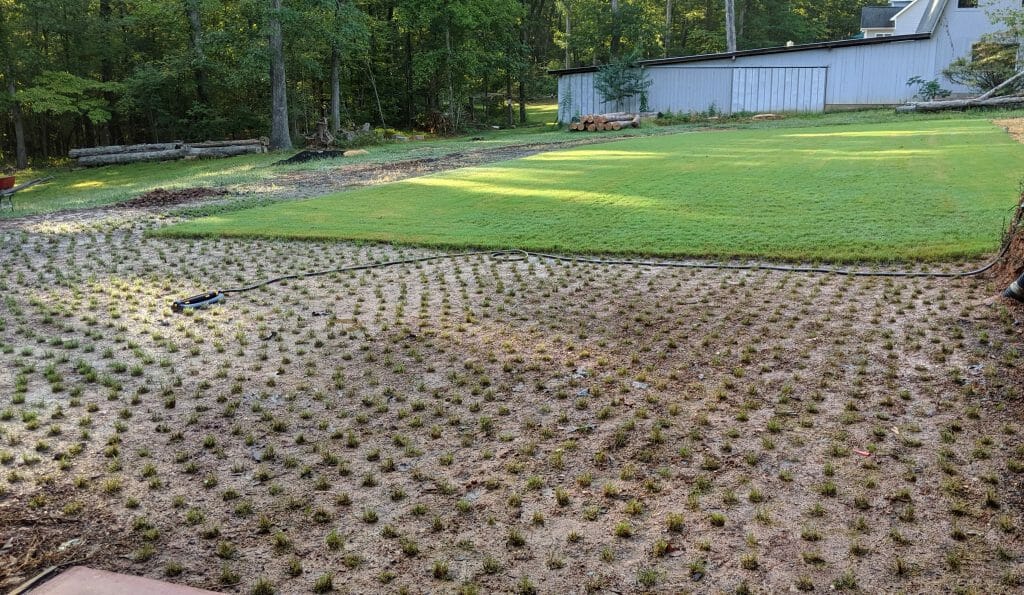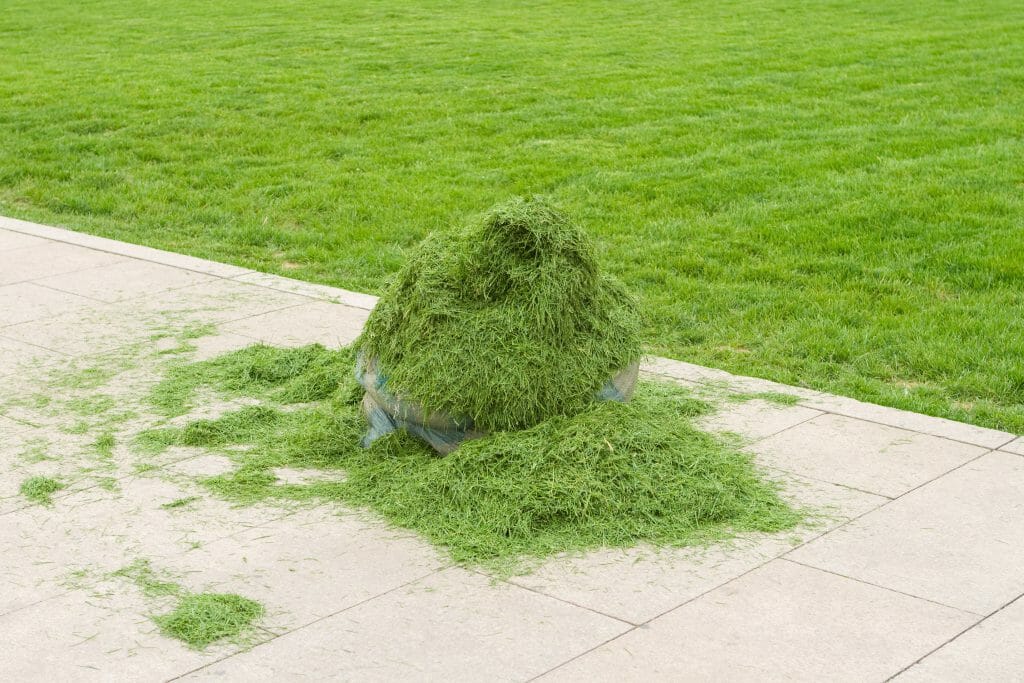Ammonia is a chemical that has a lot of different applications.
As gardeners, we are familiar with it as an ingredient in our fertilizer. But since it is a chemical, can ammonia kill your grass?
So, will ammonia kill grass? In the proper doses, ammonia is an excellent fertilizer that adds essential nitrogen to the soil. However, if it is used too often or in the wrong form, ammonia can kill your grass.
With most chemicals and fertilizers, applying them in the right quantities is key to working efficiently. It is also vital to avoid tempting ‘quick fix’ methods that will spell danger for your lawn but don’t worry; we’ll get into that.
This article is going to explain precisely what ammonia is and let you know whether it is safe to use on your grass.
What is Ammonia?
Ammonia is a chemical that is both man-made and occurring in nature. It consists of two parts nitrogen and three parts hydrogen.
Since ammonia became mass-produced, the amount of ammonia produced is around 50% man-made and 50% naturally occurring.
Natural ammonia is produced in the breaking down of manure as well as the decomposition of dead plants and animals.
It has a variety of applications; aside from being an ingredient in fertilizer, it is also used as an industrial solvent, household cleaner, fuming, treatments in the textile industry, and many others.
As a fertilizer, ammonia can be used in its diluted pure form or as an ingredient in a more complex fertilizer. It can be found in the form of salts, solutions, or anhydrous forms.
The reason that ammonia is such a good fertilizer is the nitrogen content. Nitrogen is essential for strong plant growth and nutrient uptake, and ammonia is a speedy and effective way to raise its levels in your soil.
Will Ammonia Kill Grass?
If you are using the correct form of ammonia and leaving adequate time between applications, ammonia will not kill your grass.
However, when ammonia is applied in the wrong quantities, it can cause your grass to go brown and die from the roots up.
One thing to note about ammonia is that it doesn’t last very long in an environment. Once it is applied, it is very quickly taken up by the plants and soil and recycled. This is why you need to get your quantities right when applying so that it is just the right amount to be easily used by the plants.
The idea that ammonia can kill your grass probably originates in people trying quick fixes using household ammonia rather than going out to buy the appropriate product. We do not recommend using household ammonia in your garden, as this will kill your grass for sure.
A quick fix is never a substitution for the real product, even if it is significantly diluted.
That said, overuse of ammonia can also be guilty of killing your lawn. This is because it causes an excess of nitrogen, which can impair root growth.
Overall, we recommend using ammonium nitrate for your lawn and following the instructions for use on the packaging very closely. Your periods of ammonia application should be spread apart to give the soil plenty of time to absorb and recycle it.
How to Correctly Use Ammonia
If you know how to apply your ammonia the right way, you should only reap the benefits, and your grass will be safe.
If ammonia is an ingredient in your fertilizer, we recommend applying it as you would any regular fertilizer.
However, if you are using pure ammonia, follow these easy steps:
1. Work Out Quantities
The amount of water and ammonia you need will depend on the area you want to cover. This should be indicated on the packaging.
Simply dissolve the appropriate amount of ammonia into distilled water and shake to combine.
2. Transfer to a Sprayer
The easiest way to cover a lawn evenly is by using a sprayer. This way, you will get a thin application across the lawn and not over-concentrate a certain area.
Cover the lawn in a systematic way, from side to side, refilling if needed until the whole lawn has been covered.
3. Water
To really settle the ammonia into the soil, we recommend giving the lawn a good water after applying. This will make it easier to absorb and avoid lingering and overexposing certain areas.
Image: https://www.mowingmagic.com/2021/09/5-diy-lawn-fertilizer-recipes-that-actually-work/
Frequently Asked Questions:
Can I use household ammonia as fertilizer?
As we mentioned earlier, we do not recommend using household ammonia as a fertilizer.
This is because household ammonia is not pure ammonia but rather a blend of chemicals, commonly ammonium hydroxide.
If this is applied to your lawn, it will burn your plant’s leaves and roots and certainly kill your lawn.
Is ammonia harmful to plants?
Just as with grass, ammonia can be very beneficial to your plants.
The ammonia that you have used on your lawn will also benefit your garden beds if it is applied in the same way.
Conclusion
So, at the end of the day, ammonia is an incredibly useful ingredient that is crucial to adding nitrogen to your soil.
However, if you use ammonia in the wrong form and quantities, it can kill your grass.
To avoid this, we recommend only using ammonia that is designed to be used as fertilizer and applying it in spread out intervals.
If you follow the packaging and our guidance, you will be able to apply ammonia in an ideal way so that your lawn grows lush and green.





